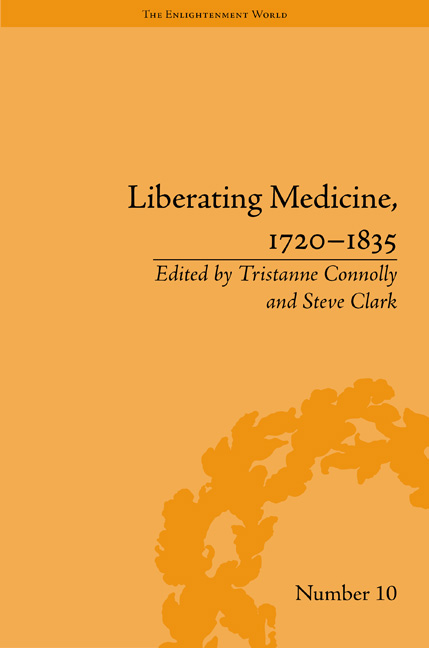Book contents
- Frontmatter
- CONTENTS
- Acknowledgements
- Contributors
- List of Figures
- Introduction
- I Spiritual Sickness and Hypochondria
- 1 Liberation and Consumption: Disease, Imperialism, and the Conversion of the Heathen in Hemans, Sigourney and Stowe
- 2 Freedom, Health and Hypochondria in Ignatius Sancho's Letters
- 3 ‘Uncle-Tommery’: Slavery and Romantic Medicine in Thomas Carlyle and Harriet Beecher Stowe
- II Health and Emancipation
- III Madness
- IV Anatomized and Aestheticized Bodies
- V Birth
- Notes
- Works Cited
- Index
3 - ‘Uncle-Tommery’: Slavery and Romantic Medicine in Thomas Carlyle and Harriet Beecher Stowe
from I - Spiritual Sickness and Hypochondria
- Frontmatter
- CONTENTS
- Acknowledgements
- Contributors
- List of Figures
- Introduction
- I Spiritual Sickness and Hypochondria
- 1 Liberation and Consumption: Disease, Imperialism, and the Conversion of the Heathen in Hemans, Sigourney and Stowe
- 2 Freedom, Health and Hypochondria in Ignatius Sancho's Letters
- 3 ‘Uncle-Tommery’: Slavery and Romantic Medicine in Thomas Carlyle and Harriet Beecher Stowe
- II Health and Emancipation
- III Madness
- IV Anatomized and Aestheticized Bodies
- V Birth
- Notes
- Works Cited
- Index
Summary
Carlyle's letters for 1853 contain numerous derogatory references to the popularity of Harriet Beecher Stowe's Uncle Tom's Cabin, which he dubbed ‘Uncle-Tommery’. Carlyle describes Stowe's novel as ‘a pretty perfect sample of Yankee-Governess Romance’, adding that ‘I fairly could not and would not read beyond the first 100 pages of it’, a characterization of the novel as exemplifying mawkish sentimentality that until fairly recently was echoed by literary critics.
Carlyle's reaction to the novel is of interest as his letters make clear that the popularity of Uncle Tom's Cabin prompted the decision to reissue as a pamphlet the highly offensive ‘Occasional Discourse on the Negro Question’ (given for the occasion the more pungent title of ‘Occasional Discourse on the Nigger Question’). Uncle Tom's Cabin thus seems to have been emblematic for Carlyle of the enervating effects of ‘Cant’ against which his later political writings are directed. A striking feature of the ‘Occasional Discourse’ is its presentation of the newly emancipated West Indian slave as a figure of pure sensuality. Although conceding that ‘one rather likes the nigger’, Carlyle insists on the emancipated slaves’ positively animalistic immersion in sensory immediacy. To quote a brief example:
Exeter Hall, my philanthropic friends, has had its way in this matter. The Twenty Millions, a mere trifle despatched with a single dash of the pen, are paid; and far over the sea, we have a few black persons rendered extremely ‘free’ indeed. Sitting yonder with their beautiful muzzles up to the ears in pumpkins, imbibing sweet pulps and juices; the grinder and incisor teeth ready for ever new work, and the pumpkins cheap as grass in those rich climates: while the sugar-crops rot round them uncut, because labour cannot be hired, so cheap are the pumpkins.
Offensive as this description undoubtedly is to present-day sensibilities, the target of Carlyle's satire is not the black West Indians, but bleeding-heart Evangelical abolitionists. As the inverted commas Carlyle places around the word ‘free’ make clear, an emancipation which results in this kind of total subjection of the human subject to the sensory world is really just another form of slavery.
- Type
- Chapter
- Information
- Liberating Medicine, 1720–1835 , pp. 41 - 54Publisher: Pickering & ChattoFirst published in: 2014

